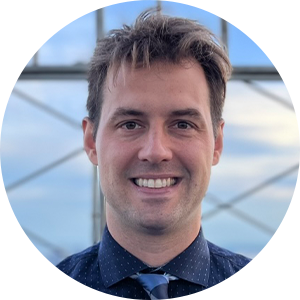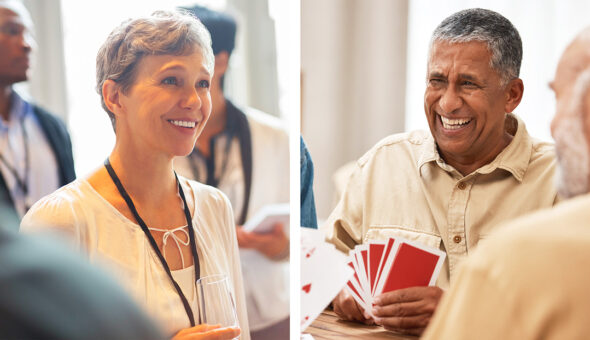Universities across the United States are tapping into the power of alumni podcasts to build stronger connections with graduates while also engaging current students. By sharing compelling stories and creating platforms for alumni to showcase their journeys, these podcasts are becoming a vital tool for brand-building and fostering community within higher education.
Podcasts give alumni and universities a chance to build their brands.
More schools are using the new media to engage current students while also keeping successful graduates in the fold.
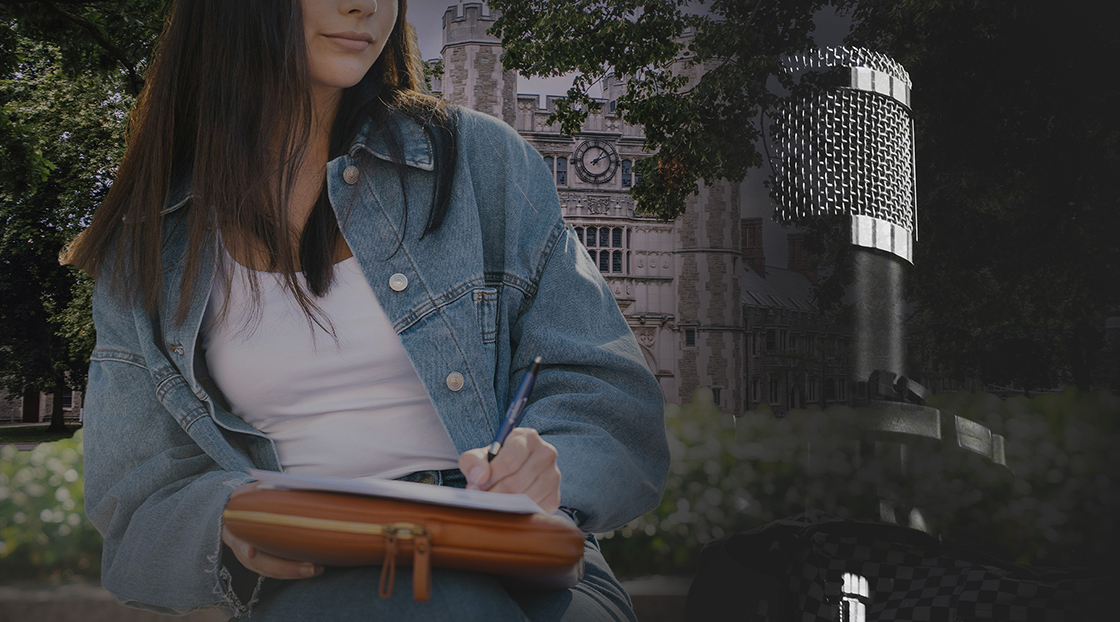
Engaging Alumni Through Podcasts
Angelo Villagomez had been a professional in the conservation space for more than two decades when the urge to give back and mentor started taking over. Life was great at work and in his personal life, but the nagging feeling of wanting to pay something forward professionally to the next generation wouldn’t go away.
Villagomez, a senior fellow of ocean conservation at the Washington D.C.-based Center for American Progress, was plenty familiar working with researchers, policymakers and lobbyists. He regularly traveled across dozens of islands in the American Pacific to speak with leaders about policies to keep oceans clean. But he rarely had the chance to interact with college aged-employees, interns or recent graduates.
“I felt it was important to do something like that,” said Villagomez, who was born in the U.S.-controlled Mariana Islands and earned his college degree in 2000 from the University of Richmond. “Conservation has to consider who carries the burden of nature, and as our movement grows, we have to really help young people to understand and get involved.”
When Maggie Johnson and the alumni association at his alma mater reached him out of the blue last year, Villagomez felt a chance to scratch that itch. A few days later, he sat with Johnson on a podcast designed for the university’s 3,700 students and network of 55,000 fellow alumni. Johnson’s half-hour interview with Villagomez for Richmond’s “As Spiders Do” podcast remains one of the program’s most listened-to episodes in the two years since Johnson and her team at the university launched it.
Richmond is far from the only school using the podcast format to encourage students and bring alumni back into the fold. Dozens of American universities now host regular online interview shows with alumni in varying formats across several different platforms. While no program is the same, interviews with hosts across the country suggest they share many similar goals in common.
Brand Building Through Storytelling
Villagomez chuckles at the irony when looking back at his undergraduate studies. His time at Richmond included earning “underwhelming” grades as a biology major and studying for “a career that didn’t exist” when he graduated nearly 25 years ago. But that’s exactly why he speaks so passionately about the school.
“Richmond prepared me to work in a career that didn’t exist,” he told Johnson. “I’m not a scientist but here I am doing science.”
For Johnson, a three-year Richmond employee who built “As Spiders Do” from its infancy into a twice-monthly show attracting hundreds of listeners, Villagomez’s story is gold in her department’s concerted marketing effort to inspire alumni “interaction.” Not everyone who graduates from Richmond can make it back to campus, but Johnson and company hope the “As Spiders Do” podcast can serve as a digital pick-me-up for those alumni living far away.
“We want to answer the question of how we get alumni to interact with the university at least once a year through our department,” Johnson explained, “and this is a unique way. People might not be able to come back to the university for alumni events, they might not be able to give to the university, but they listen to the podcast and feel engaged.”
At Syracuse University, former sports writer John Boccacino took a job with his alma mater’s alumni association in 2016 and, soon after, used his journalism chops to start ‘Cuse Conversations. Initially, an alumni podcast that featured interviews with mostly donors and alumni working in and around the university, ‘Cuse Conversations evolved to land one-on-ones with the likes of sports broadcasting icons Bob Costas, Marv Albert and Mike Tirico, among other famous Syracuse grads.
The twice-monthly podcast has aired more than 170 total episodes since launching in 2019, and gets thousands of combined engagements between SU’s website, Apple Podcasts and Spotify, according to Boccacino. Most importantly, the ‘Cuse Conversations team estimates that more than 60% of listeners stay until the very end of the podcast—a telling accomplishment in a day in age where the attention spans of content consumers are reaching all-time lows.
Boccacino’s secret? Keeping his interviews organic and unscripted.
“I’ve always been a firm believer in the power of storytelling,” he said. “Whether I’m talking to a high-level alumnus or current student, it’s just a chance for them to open up and tell their story.
I usually come up with some questions and topics and it’s a matter of just responding to where the interview goes. If a subject wants to take you somewhere, it’s a matter of sitting back and listening and picking up the breadcrumbs they drop for you. Those are the most impactful conversations.”
Intrigue over Wealth
Jeff Murphy has spent the past 13 years in alumni engagement at Boston University. A career non-profit and higher-ed director, he started the “Proud to BU” podcast in 2019 to support all 17 of the university’s schools and colleges in one place. Murphy was an avid podcast listener himself and, after hosting several webinars over the years, felt confident enough to take on hosting his own show.
“The idea was to let our alumni know they can come back and get some learning and help and resources that help them advance and find happiness in their careers,” he explained. “We do that in a lot of ways, but one of them is just getting alumni with interesting and successful careers on the podcast.”
He noted that Proud to BU guests don’t “have to be millionaires,” but they must have interesting stories to share. Through 50 episodes, Murphy interviewed young professionals in their first couple years out of college, award-winning retirees who called it a career decades ago and people of just about every age between. One lesson that’s stood out from the rest, he said, is the importance of understanding that careers are not linear journeys.
“One of my guests told me there’s no such thing as a career ladder, but rather a career full of monkey bars with all of its twists and turns,” he said. “That message is so valuable for students and alumni who might be lost looking for help understanding where they are and where they want to go.”
Donors Get First Dibs
With hundreds of thousands of collective alumni situated and thousands of different professions all across the world, how do universities select who to bring on their podcasts?
The easiest choice is trying those in the highest places: think the sportscasters from Syracuse or NASA astronaut Leland Melvin from Richmond. But they’re not always easy to get — most simply don’t have the interest or time to sit down for an hour with their alma maters.
When the biggest names in the highest places aren’t available—or even if they are—universities pivot to more “actively engaged” alumni for podcast interviews. “Engagement” in bureaucratic higher-ed admin speak refers to people donating the most money, especially in this case.
“We definitely lean more toward those people,” Johnson said. “Honestly, we usually look at them first.”
In other words, if being rich alone doesn’t help land on one of the many alumni podcasts across the United States, giving some of those riches to one’s alma mater just might be the leg up.
“From a development side of it, we do want to showcase alumni who are supporting the university with their dollars, ” Murphy explained. “It’s a way for the alumni engagement side of the house to partner with our front-line fundraising colleagues to showcase these people who have had interesting or successful careers.
“We get them to tell their stories and also talk about why they’re drawn to continue supporting the university in so many ways—with their time, talent, expertise and their checkbooks.”
Newsletter Sign up!
Stay current in digital strategy, brand amplification, design thinking and more.
Recent in Donor & Alumni Relations
Also in Donor & Alumni Relations
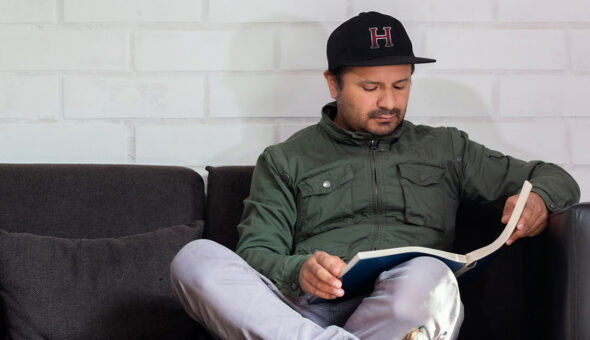
Do alumni magazines still matter?
Alumni magazines that succeed trade puff pieces for purpose — and prove their power in the inbox age.

Turning the page on tradition.
A deep dive into the magazines that keep alumni connected, informed and inspired.
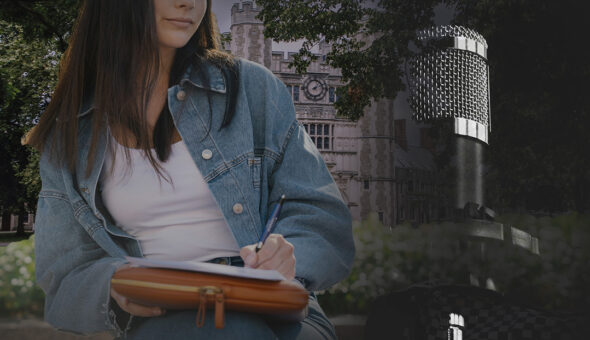
Podcasts give alumni and universities a chance to build their brands.
More schools are using the new media to engage current students while also keeping successful graduates in the fold.
